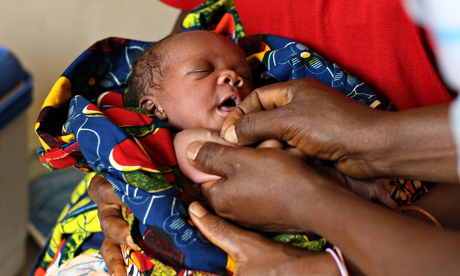
More than two in three South African mothers in private hospitals give birth by caesarean section, way above the international average, research has shown.
Experts estimate that in wealthy areas 80% choose to have a caesarean, and in some hospitals in Cape Town the rate exceeds 90%, despite the cost being higher than the fee for a natural birth. The World Health Organisation (WHO) advises a maximum of 15% caesareans per country.
Figures released by South Africa’s Council for Medical Schemes showed that nearly 70% of births to women covered by a private medical scheme were by caesarean last year.
Jacques Snyman, clinical adviser to the Resolution Health Medical Scheme, told South Africa’s Times newspaper: “Caesarean sections have unfortunately become something of a ‘scourge’ for South African medical schemes. The international rate of caesarean sections is approximately 18%, making South Africa a large outlier in terms of international standards.
“The South African rates are concerning because caesarean sections have become elective procedures based on convenience instead of medical necessity. With caesarean sections the risk of premature delivery is high and complications can arise. Premature babies are more likely to land up in neonatal intensive care and suffer a host of problems.”
The rise in C-sections is a long-term global trend. A 2010 report by the WHO claimed the procedure had reached “epidemic proportions” in many countries and raised the risk of maternal complications. It found that nearly half of births in China were delivered by caesarean section, the world’s highest rate, and a quarter of these were not medically necessary. About a third of mothers in the US give birth by C-section.
While South Africa’s rate is significantly lower in public sector hospitals, a growing middle class who can afford to go private are increasingly taking the option. Lynette Denny, a gynaecology professor at the University of Cape Town, told the Times: “There are definite indications for a caesarean section, which can be life saving for both mother and child.
“But in some hospitals in Cape Town, the caesarean rate is over 90%. In my view, that is a dangerous, reckless practice. It is well known that having had a caesarean section puts women at risk for the next pregnancy.”
The data triggered debate in South Africa over why the figure is so high. Some experts suggest that in the event of a patient taking legal action, a gynaecologist needs to show they did everything they could, including a caesarean. The Times also noted: “Many people think the high rate of caesarean sections is thanks to gynaecologists who want to work on a Monday and play golf on a Friday.”

